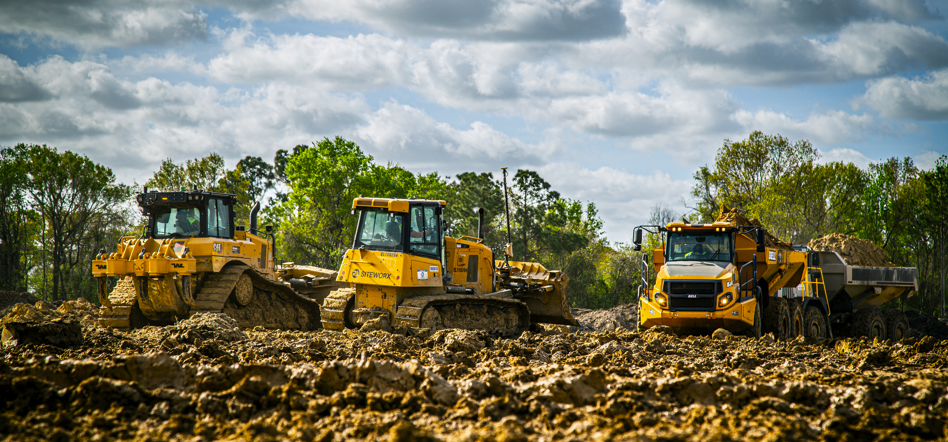What Is Sitework? A Developer’s Guide to the Most Overlooked Phase of Construction
Sitework is the first major phase of any construction project — but it’s also one of the most misunderstood.
Ask five developers to define it, and you’ll get five different answers. Yet sitework lays the foundation (literally and strategically) for everything that follows. Done right, it sets your entire project up for success. Done poorly, it can lead to costly delays, budget overruns, and endless frustration.
This guide breaks down what sitework actually includes, why it matters more than most people think, and how to approach it with the clarity and strategy your project deserves.
What Is Sitework?
Sitework refers to all the work done on a construction site before the foundation is laid and vertical construction begins. It’s what prepares raw land to become buildable, stable, and connected to essential infrastructure.
Sitework can include:
- Clearing and grubbing (removing trees, brush, debris)
- Grading and soil stabilization
- Excavation and backfill
- Stormwater management and drainage systems
- Underground utilities (water, sewer, electric, gas)
- Retaining walls or erosion control
- Roadways, curbs, sidewalks, and paving
If it happens before the slab is poured — it’s probably sitework.
Why Is Sitework So Important?
Because everything depends on it. If sitework is rushed or poorly executed, the downstream consequences can be severe:
- Improper grading can cause water pooling or foundation problems
- Inaccurate utility installs can lead to service conflicts or delays
- Missed inspections or permitting issues can stall your timeline for weeks
Sitework isn’t just dirtwork — it’s risk management.
Who Manages Sitework (and Who Should)?
Sometimes, sitework is managed by a general contractor. Other times, it’s handed off to a sitework subcontractor. But the best outcomes happen when an experienced sitework partner is involved early — ideally during preconstruction.
At RL Siteworx, we work directly with developers, civil engineers, and GCs to help plan, price, and execute sitework in a way that reduces rework and keeps the project moving forward.
What Developers Often Miss
From our experience, the biggest mistakes developers make when it comes to sitework are:
- Waiting too long to engage a sitework contractor
- Underestimating complexity, especially around drainage or utilities
- Assuming “cheapest” means “best” (it doesn’t — especially in ground conditions)
- Skipping early coordination between trades, engineers, and crews
Avoiding these pitfalls can save time, money, and a lot of stress.
How RL Siteworx Does Sitework Differently
We believe sitework should be strategic — not just transactional. Here's how we set projects up for success:
- Detailed estimates based on real site conditions
- Preconstruction collaboration with your civil and GC
- Clear documentation and scopes of work
- Project management and communication that actually works
We’re not just moving dirt — we’re building trust from the ground up.
Sitework is where your project gets real. If you want it done right — with no surprises and no cut corners — we’re here to help.
Fill out our contact form and our team will be in touch to talk through your site and your goals.






